Strong Foundations to Bold Action: 2024 Healthy Safety Net Symposium Highlights Ongoing Need to Bolster Services for Michigan’s Marginalized Populations
Jake Newby
| 5 min read
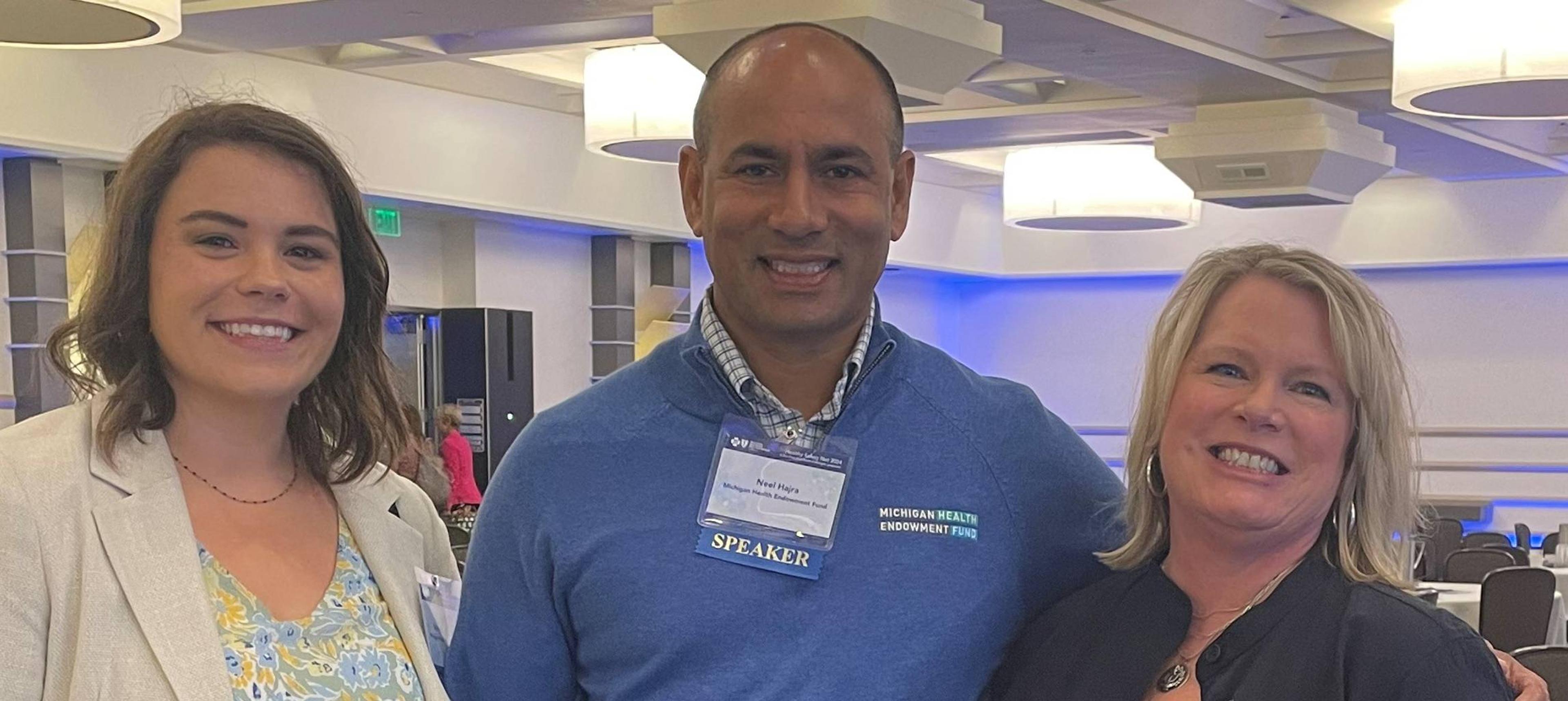
Advancing health equity for unrepresented communities and reducing racial disparities in health care access continues to be a top priority for Blue Cross Blue Shield of Michigan. More than 200 health professionals from across the health care safety net gathered in Lansing this month at Blue Cross’ 2024 Health Safety Net symposium to share best practices and focus on opportunities to improve safety net health care delivery.
From innovative crisis care services to prevent suicide to the mindful, diligent work being done to minimize human trafficking, homelessness, and addiction. From closing the gaps in health disparities to caring for people with disabilities in diverse communities.
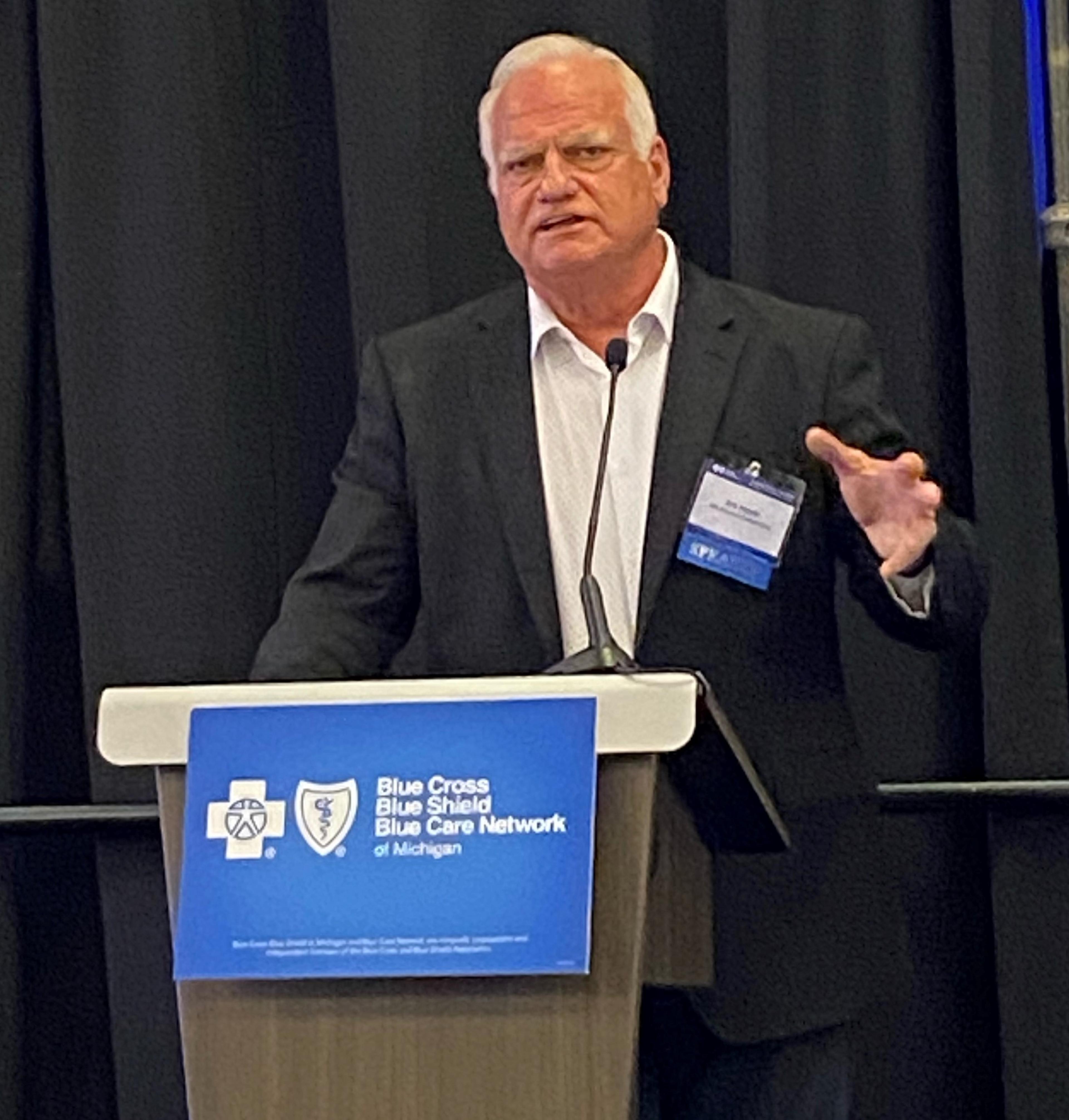
These areas and more were discussed at this year’s symposium as safety net health care providers from every sector of the state, BCBSM, representatives from the Michigan Department of Health and Human Services (MDHHS), health funders and many others shared the foundations they are laying, and the bold action they are taking to improve health care delivery in the state.
In addition, this year’s symposium celebrated 20 years of Blue Cross’ investment in Michigan safety net health care through the Strengthening the Safety Net grant program.
Caring for people with disabilities from diverse communities: Best practices
Tameka Citchen-Spruce’s dream of becoming a broadcast journalist was very nearly derailed because of her physical disability. At the symposium she recalled being sat down, alongside her mother, at one of the schools she applied for and being she would not be allowed to attend.
“I was crushed, but the determined person that I am, I kept going and eventually was accepted at Oakland University” said Citchen-Spruce.
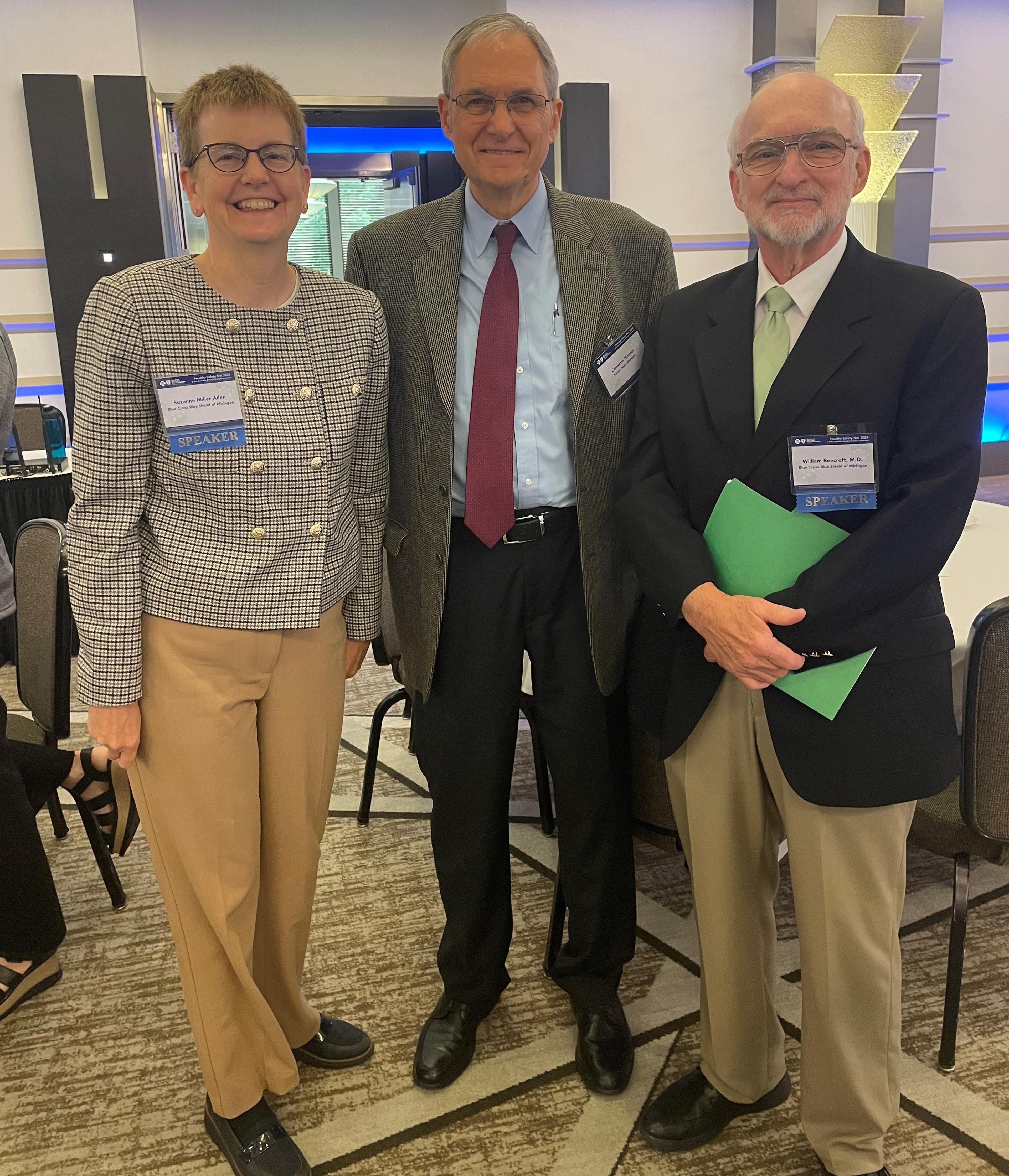
At just six months old, Citchen-Spruce was involved in a horrific car accident that left her paralyzed from mid-chest down. The hurdles she faced not only as a person with a disability, but as a Black woman, surfaced daily as she grew up. She’s been discriminated in all facets of life, including health care.
“When I was younger, I inquired about getting a pap smear by my private physician, she told me, ‘Oh, you don’t need that,’” said Citchen-Spruce, who now is a co-director for leadership engagement and advocacy development for the Michigan Disability Rights Coalition. “That’s another example of how it can be detrimental to women and people with disabilities, and how implicit bias comes into play.
“The idea that many physicians and health care providers have is that people with disabilities can’t have sexual transmitted diseases because they can’t have sex,” added Michelle Meade, University of Michigan Department of Physical Medicine and Rehabilitation professor and director of UM’s Center for Disabilities, Health and Wellness. “That they don’t need contraceptives. That they don’t need to have discussions about parenting or reproductive health.”
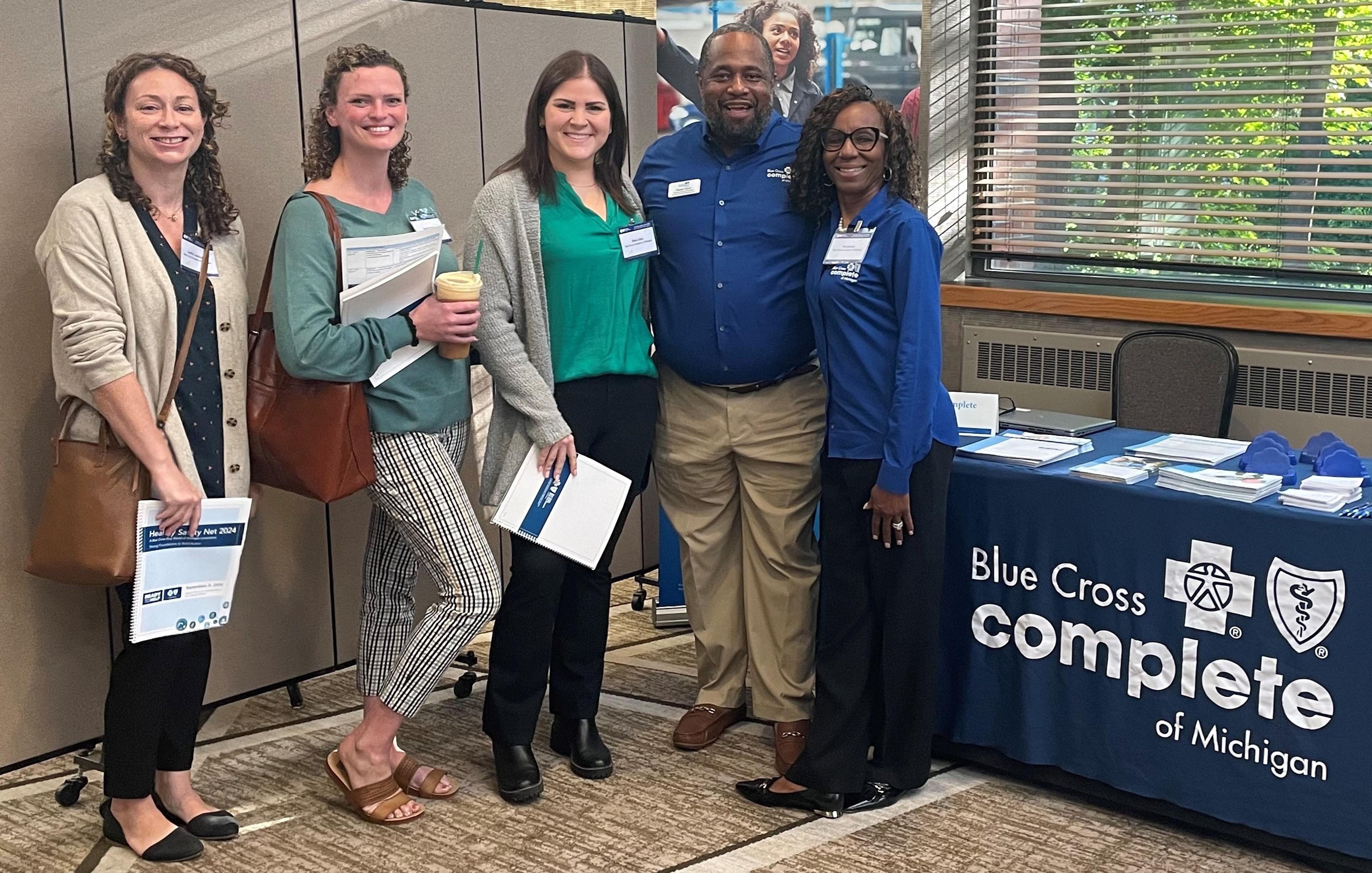
Meade spoke about actionable steps we can take in not only caring for people with disabilities, but people like Citchen-Spruce, from diverse backgrounds. She mentioned:
- Increasing awareness about what a disability is and what it means.
- Determining factors and social determinants of health families are dealing with.
- Creating environments that allow the time and flexibility for individuals with sensory disorder to either have a stimulation or have quiet spaces, so they are not overwhelmed.
“Health care disparities are results of modifiable factors within our health care systems,” Meade hammered home. “What we do to address them, that responsibility is on us. We have to make the changes.”
Supporting individuals at the intersection of human trafficking, homelessness and addiction
One of the most powerful text messages Street Outreach Teams President Stanley Stinson received in the past year came from one of his patients, a sex trafficking victim. The pseudonym he assigned to this woman was “Kayla.”
“’Stanley don’t ever give up on me. I need you,’” Stinson read, during the symposium. “That was like, eight months ago. Just this morning, I got a text from her housing specialist and from her almost at the same time. She got keys and is moving into a house. So that’s a happy story.”
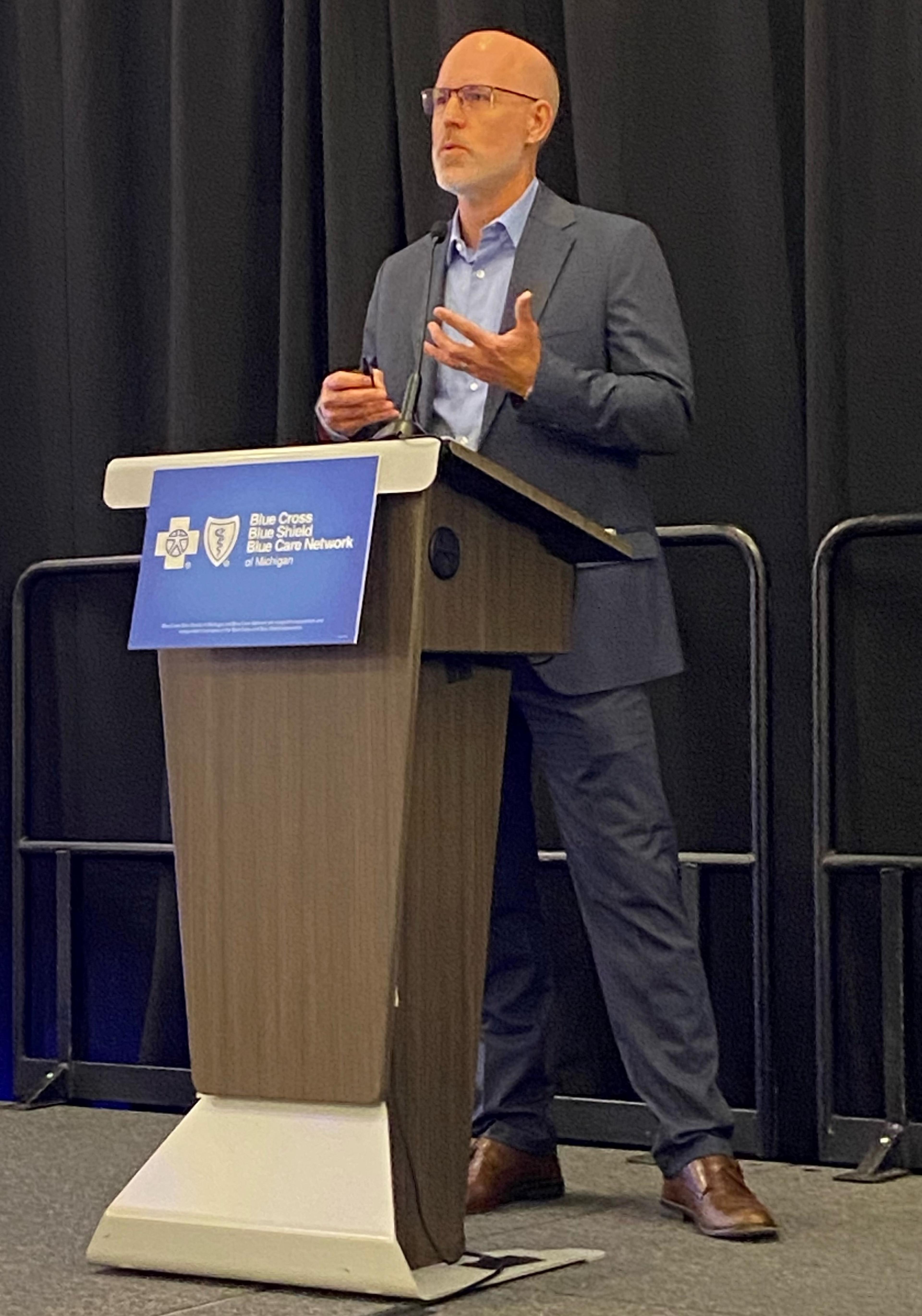
In addition to his role as president, Stinson is a street outreach nurse at Street Outreach Teams, a BCBSM grantee. He helped develop a survey released in 2024 titled “Barriers to Escape: How Homelessness and Drug Addiction Prevent Women from Escaping Sex Trafficking and Commercial Sex.”
While discussing the harrowing results of the survey, Stinson reinforced the need for organizations to meet young people where they’re at. Both he and Catherine’s Health Center Medical Director, Mark Contreras talked about how important a thoughtful approach is to building trust with young people mired in mental, emotional and behavioral trauma.
“If we’re consistent and we’re intentional with what we’re doing, and we’re following through with what we say and not making promises we can’t keep, trust builds pretty fast,” Stinson said.
“Letting them lead their care is big,” Contreras added. “They’re used to being told what to do. When we allow them to tell us what they’d like us to do for them or with them, I think that can be really powerful.”
Contreras closed he and Stinson’s question-and-answer segment by mentioning a statement that was relayed to him recently, one that meant a lot to him.
“I wasn’t at the resource center one day, and the next week when I was there, one of our partners said, ‘hey there was a guy looking for you,’” Contreras recalled. “It was just so cool what he said our patient told him, he said: ‘Mark is my doctor, but he was my friend before he was my doctor.’ That’s just a testament to how we’re trying to lead with care.”
Photo credit: Shelley DuFort/BCBSM





